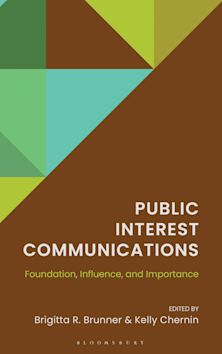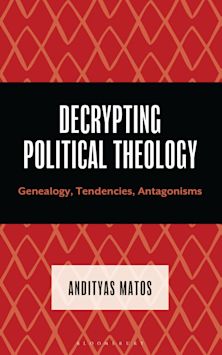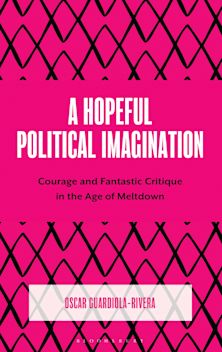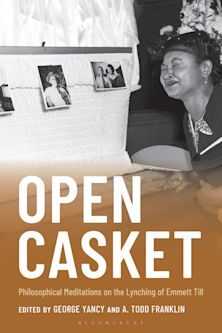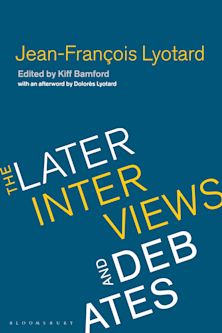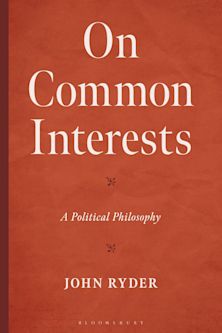- Home
- ACADEMIC
- Philosophy
- Social and Political Philosophy
- Against Religion, Wars, and States
Against Religion, Wars, and States
The Case for Enlightenment Atheism, Just War Pacifism, and Liberal-Democratic Anarchism
Against Religion, Wars, and States
The Case for Enlightenment Atheism, Just War Pacifism, and Liberal-Democratic Anarchism
You must sign in to add this item to your wishlist. Please sign in or create an account
Description
In Against Religion, Wars, and States: The Case for Enlightenment Atheism, Just War Pacifism, and Liberal-Democratic Anarchism, Andrew Fiala argues that, societally, we must radically redefine our goals. A renewed focus on global justice, a heightened criticism of religion and a fuller embrace of enlightened humanism and the sciences are just some of the ways in which we can begin to address some of the problems endemic to our society, and ultimately bring about more lasting peace. Fiala argues both theoretically and empirically, moving from analyses of theology, ethics and political philosophy to case studies and data mined from these respective disciplines, and from the fallout of recent world events involving all three. Fiala attempts to wean us off of our deferral to the oppressive forces that spark movements like Occupy, and the Arab Spring, forces that manifest themselves in the brutal drug wars along our borders, and in the currently fractious and bigoted rhetoric of some of our most powerful political and religious leaders. Against Religion, Wars, and States provides a provocative, unified, and revolutionary critical theory for all who are skeptical of the religious, political, and military powers that be, and points the way towards a more peaceful, just and reasoned future.
Table of Contents
Chapter 1: Against Religions, Wars, and States
Argument and Method
Civilization, Authority, and Bullshit
Costs and Benefits: A Preliminary Account
Conclusion
Chapter 2: Five Principles of Criticism
Methodological Considerations
The Individual Liberty Principle
The Caring Community Principle
The Skeptical Principle
The Peace Principle
The Cosmopolitan Principles
Conclusion
Chapter 3: Agnosticism and Atheism
Skepticism about Religion
Individual Liberty and Religion
Genuine Community, Universal Justice, and Peace
Conclusion
Chapter 4: Religion, The Military, and the Secular Challenge
The Unholy Conjunction of Religion, Politics, and Violence
Toward a More Secular Union
Thank God for the First Amendment
Science and Religion in the Public Sphere
Conclusion
Chapter 5: Religion, The Family, and Criminal Justice
Religion and Demography
Women and Children
Violence Against Children
Free Will and Criminal Justice
Conclusion
Chapter 6: Skeptical Pacifism
The Peace Principle
Agnosticism and The Just War Tradition
Military Service, The Individual, and The Community
Atheism, Cosmopolitanism, and Pacifism
Conclusion
Chapter 7: The War-System, Profit, and the Failure of Just War Ethics
Standing Armies and Spending Priorities
The War Racket and Just War Theory
A Case Study from the Eastern Mediterranean
Defense Contractor Profits
Arms Dealers, Power, Politics, and the Revolving Door
Global Profits and Unjust Arms Deals
Conclusion
Chapter 8: One-Sided Wars: Torture, Nukes, Religion, and Collective Narcissism
Good Guys and Bad Guys
Religion and the War on Terror
Nuclear Madness
Humanitarian Interventions
Conclusion
Chapter 9: Social Contract Anarchism and Cosmopolitan Democracy
Against the Organic Platonic State
Skepticism and the Liberal Social Contract Theory
Individual Liberty, Nation-States, and Genuine Communities
The Cosmopolitan Principle and The Peace Principle
Conclusion
Chapter 10: Civil Religion, Voting, and Oligarchy
Patriotism, Civil Religion, and Military Service
Voting, Consent, and Political Power
The Money Problem
A Constitutional Crisis?
Oligarchy
Getting Away with Murder
Conclusion
Chapter 11: State Violence, the Prison-Industrial Complex, and Immigration
Civilization and State Violence
Restorative Justice and Police Brutality
Drug War Profits
Deterring Crime
Convicting the Innocent
Defining Crime and Defending Punishment
The Prison-Industrial Complex
Conclusion
Chapter 12: Conclusion
Bibliography
Product details
| Published | 15 Aug 2013 |
|---|---|
| Format | Ebook (PDF) |
| Edition | 1st |
| Extent | 1 |
| ISBN | 9798216294955 |
| Imprint | Rowman & Littlefield Publishers |
| Publisher | Bloomsbury Publishing |
About the contributors
Reviews
-
Andrew Fiala’s book is a fascinating argumentative essay on political philosophy, whose author boldly undertakes the colossal task of convincing his readers that humanity should abandon the religious, military and state institutions it has known since the dawn of its history. Basing on rational scepticism and humanistic morality, Fiala severely criticises the present status quo as deeply irrational, immoral and unjust, and distinctly places himself on the side of atheism, pacifism and anarchism. Despite certain theoretical difficulties, this book is an important, interesting and defiant voice in the ongoing debate on humanity’s political social troubles in the globalized reality of the 21st century.
Dialogue and Universalism
-
Andrew Fiala’s book is a spirited, rigorous, and—most important—caring analysis, critique, and evaluation of the interconnections of organized religion, violence, and nation-states. The author provides a sustained and detailed treatment of the all-too-often destructive interplay of these aspects of modern culture, all the while maintaining a modest thesis of being respectful of what can be a more constructive understanding and approach to concerns of spirituality, individual freedom, and caring communities. This is a cogent, thoughtful, and passionate call to articulate, question, and rethink our individual and collective assumptions about how and why to advance a more peaceful world.
David Boersema, Douglas C. Strain Chair of Natural Philosophy, Distinguished University Professor, Pacific University
-
At a time when so much academic philosophy overlooks, or even makes apologies for, violent and oppressive institutions, Against Religions, Wars, and States serves as a bold reminder of the critical function philosophy can and should serve in contemporary political discourse. With clear prose and rigorous argumentation, the book demonstrates that atheism, pacifism, and anarchism are not fringe ideologies, but consistent outgrowths of the best traditions of Enlightenment thought: rational skepticism and moral humanism. Andrew Fiala has thrown down a powerful gauntlet which cannot in good conscience be ignored.
Nathan J. Jun, Midwestern State University
-
At a time when religious fanaticism, state-sponsored oppression, and the omnipresent threat of war amongst nations is the norm, Fiala challenges us to re-think the reasons that justify the existence of these, our most cherished, yet least rational, institutions. The argument here is not that we must rid ourselves of religion, states, or war—a seemingly impossible task for humanity, which finds comfort in its superstitions and dogmas—rather, the argument is that we must detach ourselves from the belief in their necessity, if just for a bit, and consider these institutions for what they really are. What we get is a picture of a world better suited to take on the trials and tribulations of an uncertain, and ever more demanding, future. This is an excellent and timely book.
Carlos Alberto Sanchez, San Jose State University
















